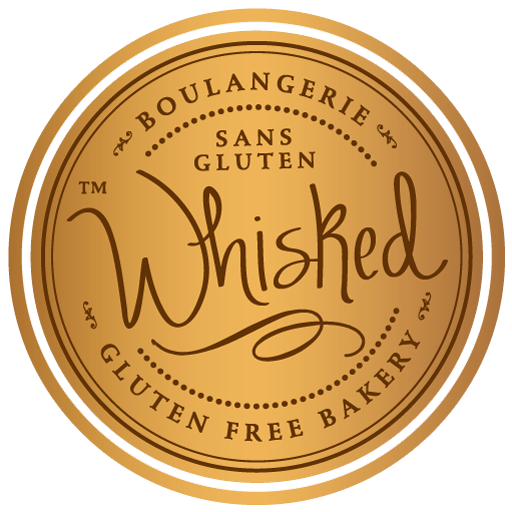What ingredients should I avoid?
By Julie Chan, Naturopathic Doctor, Registered Acupuncturist, IV Practitioner
Ingredient lists are often more complex than Nutrition Fact Labels. Here we focus on helping you identify ingredients that may be harmful to your health so you can quickly assess whether a food item should be consumed regularly, on occasion or rarely.
Artificial Flavours and Colours
Artificial flavous and colours are often are blends of tens to hundreds of chemical additives used to enhance the taste and visual profile of otherwise “tasteless” processed products. Many of these ingredients can be genetically engineered flavor enhancers. Artificial flavors and colours have been linked to worsening symptoms of depression, anxiety, autism, ADD/ADHD and other neurological conditions. Some common artificial flavors and colours include MSG, Blue 1 and 2, Red 3, Yellow 6, Green 3.
Artificial Sweeteners
Sweeteners such as acesulfame potassium, sucralose, saccharin, and aspartame have been associated with worsening inflammatory bowel disease, certain artificial sweeteners also destroy gut flora, and can be toxic to the nervous system such as aspartame.
Dairy / Casein
If you are dairy or casein sensitive or allergic, be sure to watch out for these ingredients including butter, caseinate and casein derivatives, any milk, cream, custards, cheese, hydrolysates, whey, lactoglobulin, lactate solids, lactulose, lactose, milk solids, milk fat, quark, rennet, nisin
Genetically Modified Organisms (GMOs)
GMO’s or genetically modified organisms refer to plants or animals created through gene splicing techniques of biotechnology, specifically, by merging DNA together from different species. GMOs were first approved in 1994, and many researchers, institutions, environmentalists and holistic healthcare practitioners began to have concerns about the health and environmental effects that GMO had. There have been preliminary research documenting the many dangers of GMOs but unfortunately, there are currently no mandatory labeling laws for genetically engineered foods in Canada. Foods that are GMO include papaya, corn, soy, zucchini, cottonseed, canola, sugar beets, squash, and milk products.
Gluten
We now know that a person does not have to have Celiac disease to be gluten intolerant. Gluten is one of the most inflammatory proteins and is found primarily in wheat products, with lesser concentrations in barley, rye, and spelt. Wheat products consists of whole wheat, wheat bran, wheat protein, brewer’s yeast, bulgar, durum, graham, kamut, malt, wheat starch, semolina, wheat germ, seitan. Oatmeal, oat bran, oat flour or whole oats unless certified gluten-free are often contaminated by wheat products.
High Fructose Corn Syrup
High Fructose Corn Syrup is considered to be worse than sugar and has been linked to obesity, diabetes, liver issues, cholesterol problems, inflammation of the gastrointestinal tract.
Hydrogenated or Fractionated Oils
Man-made substances that are also known as Trans fats. It has been shown to be so harmful for the body; many foods have eliminated it from their ingredients. It can cause issues with the cardiovascular, immune, hormonal and nervous systems.
Organic Vs. Non-Organic
Organic products are definitely recommended over non-organic foods as they do not have added pesticides, herbicides, antibiotics, non-organic fertilizers, hormones during their production. Organic foods also do not contain genetically modified ingredients. Only products with organic content that is greater than or equal to 95% can be labelled as organic or bear the Canadian Organic Label.
Preservatives
Preservatives are used primarily to prevent fats from becoming rancid. Petroleum-based preservatives have been found to trigger behaviour and health problems including BHT (Butylated dydroxyanisole), BHT (Butylated Hydroxytoluene), TBHQ (Tertiary Butylhydroquinone). Many of these are still found in Canadian supplements even prenatal vitamins. Other common preservatives to watch out for include nitrates and sulfites commonly found in processed meats and dried fruits and nuts. Potassium Benzoate and Sodium benzoate have been found to convert into carcinogenic (cancer-causing) substances and can show up in foods such as apple cider, low-fat salad dressings, syrups, jams, olives, and pickles. There’s also Propyl Gallate found in meat, soup bases, gum. Potassium sorbate is one of the most profusely used preservatives, found in many dairy products, fresh and dried fruits, wines and has been found to be a carcinogen, and can cause reproductive problems.

Connect with
Dr. Julie Chan, ND, R.Ac.
Liberty Wellness Clinic
Liberty Square Markham
3621 Highway 7, Suite 307
Markham Ontario, Canada
905-604-8480
